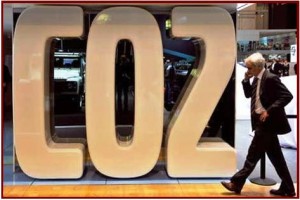
The EU wants to make vast changes in the infrastructure by taxing non-favored forms of transport so that automobile and truck use are actively discouraged and rail and water shipping become the most efficient choices. The counter from automakers are hybrids and EVs.
BMW Group and Toyota Motor Corporation today announced that they have signed an agreement on collaborative research covering next-generation lithium-ion battery cells. Research has already begun. It is the latest example of automakers trying to decrease the astronomical cost of developing more efficient vehicles mandated by increasingly stringent fuel economy and CO2 regulations. The agreement follows the memorandum of understanding announced by the two companies on 1 December 2011. (See BMW and Toyota to Jointly Research Lithium Ion Batteries)
Current production Toyota hybrids use nickel metal hydride batteries, an older but thoroughly proven technology. Toyota has been reluctant to use the newer, more expensive technology, much loved by environmentalist, but basically shunned thus far by mainstream car buyers. Nevertheless, Toyota is introducing its first generation of lithium ion batteries in the Prius Plug-in hybrid just on sale in the U.S.
The BMW Toyota research project under the agreement is concentrating on increasing the performance and capacity of lithium-ion battery cells with new combinations of materials for cathodes, anodes and electrolytes.
In addition to the collaborative research agreement, Toyota Motor Europe and BMW Group entered into a contract for BMW to supply 1.6 liter and 2.0 liter diesel engines to TME starting in 2014. Since Toyota does not produce Lexus luxury models in Europe, no direct marketing conflict is immediately apparent. The rising value of the Yen has forced a reluctant Toyota to increase production and sourcing of components outside of its home market in Japan where it is a major contributor to Japanese economic and social well being as the biggest automaker.
Toyota is the global leader in hybrid sales, a growing segment the German companies once renowned for engineering leadership completely missed. As a result, with arguably the exception of Honda, which also had an early hybrid program with its Insight, all companies have been playing catch up to Toyota’s impressive green image that resulted from the overwhelming success of the Prius hybrid and subsequent Toyota and Lexus derivatives.
See:
- Honda Claims it will lead in Fuel Economy in All Classes within Three Years. New EVs and Hybrids Coming
- Volkswagen Cross Coupe Plug-in Hybrid Unveiled at Tokyo
- Honda to Show AC-X Plug in Hybrid at Tokyo Motor Show
- 50 MPG Predicted for Toyota Prius c Hybrid
- Chevrolet Volt Fire After Crash Prompts NHTSA Investigation
- Ford Taking Orders for 2012 Focus Electric at $39,995
- Chevrolet to Produce Spark EV All-Electric Vehicle
- With BMW EV Due, Study Says Range Anxiety Not an Issue

